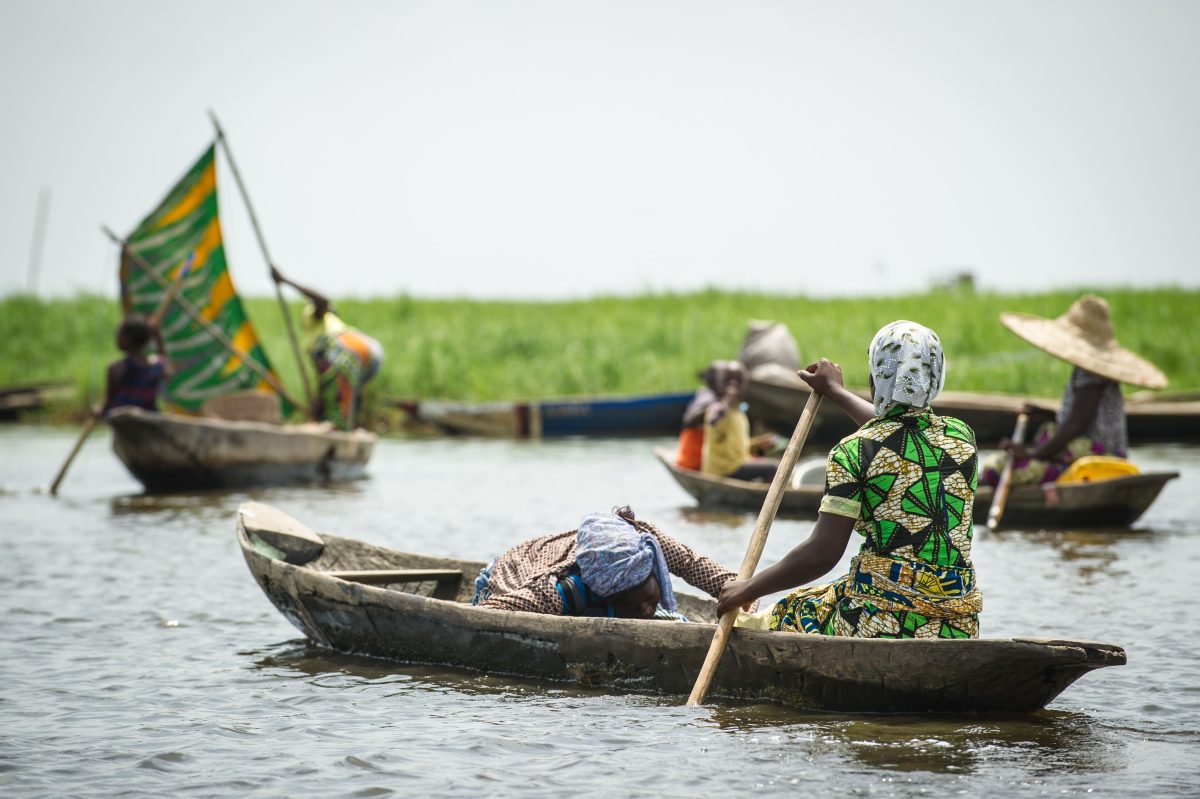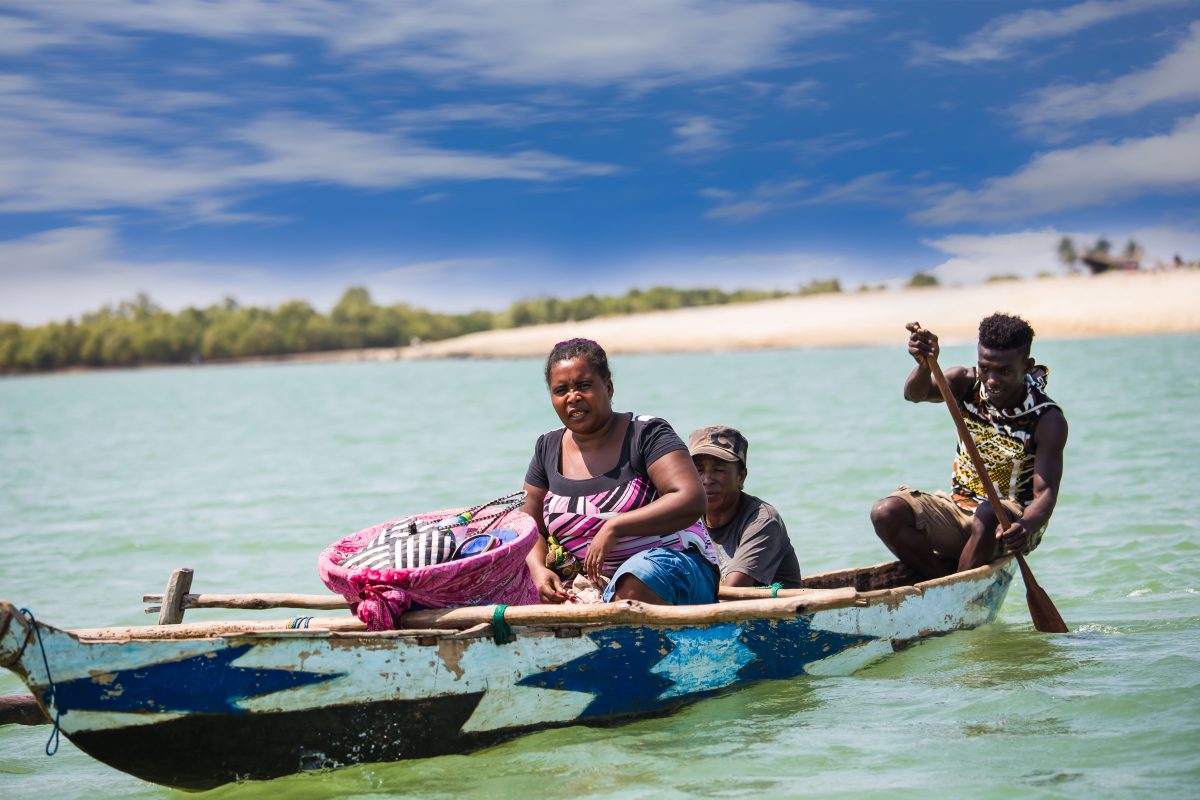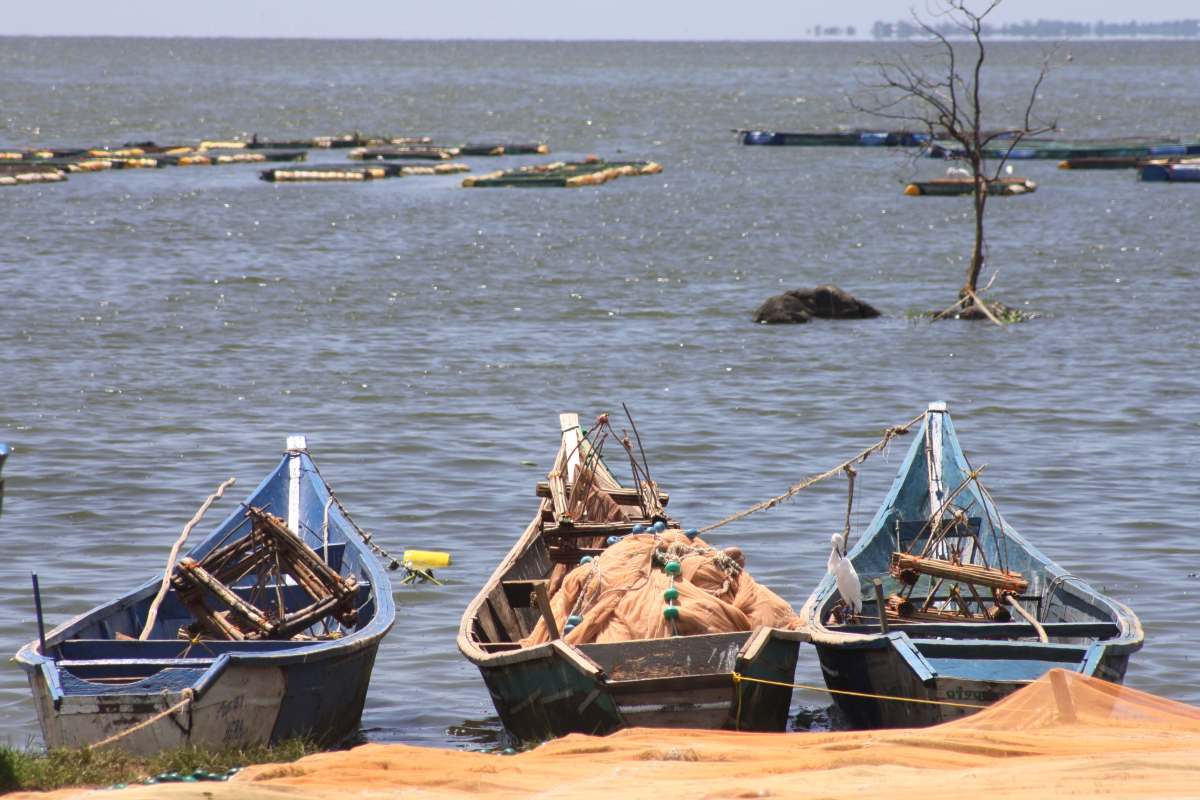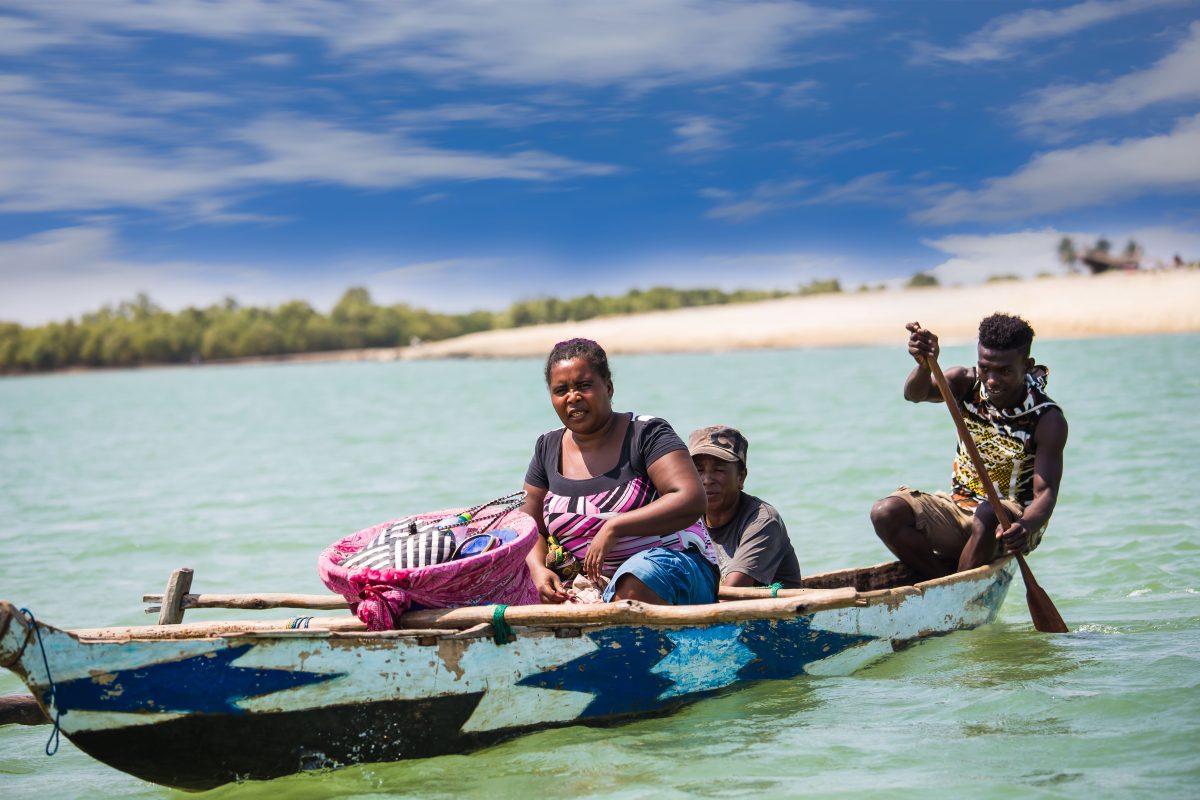This window targets commercial private sector enterprises that economically empower women and young women in the Coastal Region of Kenya applying for investment grants of up to US$50,000- US$400,000 and includes a grant to own contribution matching fund ratio of 1:0.5.
-
Objectives
- Enhance financial inclusivity for women and young women in medium-sized enterprises operating within the blue economy sector, increasing access to credit, enabling market linkages, supplying inputs, products, and services along the value chain, and creating employment.
- Provide targeted enterprise development technical assistance and capacity building on gender mainstreaming for enterprises.
- Advocate and increase awareness of the business case for investing in women in the blue economy in Kenya.
- Provide incentives for sustainable widespread adoption of climate-smart practices in Kenya’s blue economy.
-
Geographical focus
Counties of focus: Kwale, Mombasa, Kilifi, Tana River, Lamu, and Taita Taveta. We are also accepting applications from Busia, Siaya, Kisumu, Homabay and Migori counties.
The WBEE funding window is available for commercial private sector enterprises that economically empower women and young women in the Blue Economy across the Republic of Kenya, both at early and growth stages.
Enterprises proposing project ideas to be implemented must demonstrate upstream or downstream supply chain linkages to the counties in the Indian Ocean or Lake Victoria Region.
-
Focus sectors
- Fisheries
- Productive use of renewable energy
- Waste management
- Biodiversity protection (marine and lake biodiversity)
- Tourism-provision of products and services to the tourism sector
- Supply of inputs and services(e.g., access to finance, climate-smart technologies – aquatic blue food storage and transportation, market information etc)
- Social enterprises that reduce the burden of care for women and young women (e.g., daycare child services)
-
Eligibility criteria
Applicants showing a willingness to participate in the competition for grant funding must abide by the following eligibility criteria:
- Be legally registered as a for profit private sector enterprise with activities aligned to the focus sectors and with capacity to work with small and micro enterprises in the geographical scope. The businesses must be physically established in Kenya at the time of award and investment by AECF.
- Enterprises with a majority female ownership with a dominant representation of women employees, suppliers of raw materials, or distributors.
- The company should produce audited accounts for at least two (2) years (these could be from the parent company, if recently established as a branch or subsidiary in Kenya).
- The window targets enterprises which have a minimum annual turnover of US$100,000. Promising enterprises that do not meet the minimum turnover threshold will be considered on a case by case basis.
- Be able to show commitment to match AECF’s funding based on the ratios stated in the matching contributions arrangement highlighted in the matching fund’s section above.
- Request the grant funding within the stipulated time and funding range provided.
- Be compliant with the fundamental laws and regulations of Kenya, including tax, regulatory, health and safety, and human resource compliance laws.
- Comply with the applicable international human rights, labour standards, and environmental management laws as expressed in the International Bill of Human Rights and the core labour standards established through the International Labour Organizations.
- Demonstrate commitment to gender equality and the empowerment of women and young women while conducting business.
- MUST NOT be involved in any act of corruption. AECF requires that the applicant (including its staff, contractors, and suppliers) not be involved in offering third parties, or seeking, accepting, or being promised by third parties, for themselves or any other party any gift, remuneration, compensation, or benefit of any kind whatsoever, which could be interpreted as an illegal or corrupt practice.
- MUST NOT be involved in any act of terrorism or support terrorists’ activities. The business will comply with all applicable anti-terrorist financingandassetcontrollaws,regulations,rules,andexecutive orders. The business should have a duty of care to ensure they are not dealing with suppliers on debarment, suspension, exclusion and anti-terrorism on its suppliers, consultants and staff.
- Allow AECF regular due diligence and monitoring visits.
- Demonstrate additionality; see broad view guide in section 10.
-
Desired socio-economic impact
Business models must demonstrate how they deliver and sustain social impact in their target markets. Specifically, this means the number of households served by the product, service or a combination of both, improvements in women’s income, inclusivity of women, stimulation of market growth, and engagement of women and young women-owned micro, small and medium enterprises (MSMEs) in the respective value chains or sectors of Kenya’s Blue Economy.
Companies should articulate their strategy to meet the following:
- Include women and young women in the management of the organization.
- Gender-inclusive practices in their operations (e.g., women-centered design and collection of gendered data).
- Demonstrable benefits to women in terms of increased time available for other activities, improved health, reduced drudgery, and increased household spending power.
- Women-led supply chains; demonstrate the engagement of women and young women micro and small enterprises as key actors within the supply chain and potential opportunities for such women-led product or service supply activities to grow into SMEs.
- Qualitative indicators around women and young empowerment (e.g., ability to own assets; access to credit, use of existing women development structures to increase access to climate-smart technologies in the rural and peri-urban communities).
- Demonstrate a clear end-user financing mechanism or strategy that enables target communities with low and irregular incomes to access improved climate-smart technology, practices, and services.
- Projects must be environmentally friendly. Environmental impact assessments and mitigation measures approved by pertinent regulatory authorities must be obtained.
-
Throughout the funding life, companies must demonstrate that they promote sustainable development outcomes in their target communities and market.
Progress in attaining the above will be measured through:
- Number of new jobs created by the enterprise (60% for women).
- The volume of blue economy products or services bought from women and young women MSMEs in US$.
- The volume of inputs and or services sold to women and young women MSMEs.
- Number of poor and vulnerable people reached through awareness programming on social norms, by-products, and services.
- Number of eligible women and young women-owned medium sized enterprises expanding businesses.
-
Funding
Total grant funds requested from AECF must be between US$ 50,000 and US$ 400,000.
- Applicants are expected to submit a funding application justifying their requirements for the business and or idea to be funded, the funding amount and the project duration.
- Funding must be used for a specific project in one or more of the target counties, e.g., introducing new services or products, scaling up an existing enterprise or replication or expanding to a new market. Investees can apply for a range of funding depending on their development stages.
- Funding will be in the form of performance-based grants.Funding is subject to meeting match funding criteria (see the section on Matching Contribution). Businesses should apply for funding depending on their development stage and capacity to absorb funding for the proposed project.
- Funding payments will be milestone based, where disbursements are based on mutually agreed milestones that must be achieved. The first disbursement will not exceed 30% of the total amount awarded.
Duration of the funding agreement: up to November 2026.
-
Type of support available
Shortlisted applicants and grantee investees will be able to access AECF’s support package which includes:
- Provision of targeted pre-investment technical assistance on business development services as required by the investee through the AECF Advisory Studio.
- Assist in investment facilitation services that enable the enterprise to access follow on funding from other capital providers.
- Create market linkages that provide access to climate-smart technologies to enhance the sustainability of business models
- Create pathways for market access through B2B linkages, product development advisory services, facilitation of the certification process and involvement in trade fairs among others.
- Gender equality and social inclusion incentives, e.g., top-up funding where applicable, which reward investees that make significant changes to their processes to be gender-responsive and create increased opportunities for women along the value chain, develop policies and practices in response to their gender focus and monitor progress milestones.
-
Selection criteria
Each enterprise will be evaluated and scored against the following criteria:
- Demonstrate how gender analysis1 has informed the product and or service design and how it will impact the project.
- The company must demonstrate that the women and young women are active participants in the decision-making and operations of the business.
- Outline a commercially sustainable business model with the proposal showcasing a technically sound business aligned with the activities described in the focus sectors above. It should spell out how performance is measured and evaluated with all agreed-upon indicators, targets, and milestones.
- Demonstrate a track record of earning revenues from their users for existing products and or service demonstrating success in at least one market.
- Must demonstrate a satisfactory performance record of the entrepreneur, technical person (s), or enterprise. Where available, testimonials of past performance should be submitted.
- Demonstrate the capacity of the management team to implement the proposed business project (adequate internal resources and capacity) – at headquarter and in-country.
- The proposal must include the Curriculum Vitae (CVs) of key personnel clearly outlining the educational and work experience to accomplish the technical nature of the proposed project.
- The proposal must also indicate the methods and degree of coordination with local administration and participating communities.
- The product or services provided must be certified or in the process of being certified in line with global standardization procedures and or supplied by a certified product manufacturer, clearly marked as an acceptable quality of the product.
- Demonstrate investment relationships or potential to access matching funds (based on the agreed ratio), leveraging additional and follow-on funding.
- Demonstrate how matching funds are to be made available, indicating details of when the cash will be available.
- Demonstrate understanding of the country context and culture where the project is proposing to operate.
- Demonstrate how the business model will deliver and sustain social impact in the target markets i.e., demonstrate how to leverage AECF funding to secure commercial funding.
- All business proposal must include where available or indicate the plans to make available environmental impact and waste management policy and procedures in alignment to environmental management regulations. Investees are expected to provide an outline of potential wastes in the supply chains and how they intend to manage these.
- Indicate any risks and threats to project implementation and methods that would be used to mitigate such risks.
-
Contact us
For clarifications contact: blue-economykenya@aecfafrica.org

Programme Brief

FAQs


